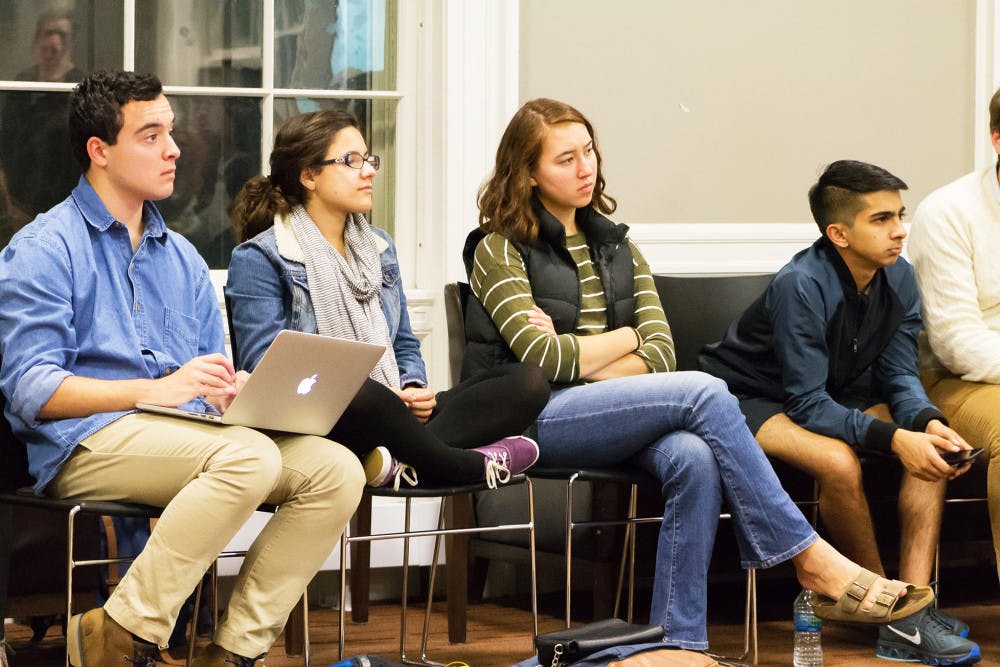The Mental Health Community Council and Title IX Oversight and Advisory Board will debut a pilot program for research funding this semester. Students serving on those committees will receive an hourly wage for committee-related projects.
Members of the MHCC and Title IX OAB will be given the opportunity to work with their committee chairs to propose research initiatives on mental health- and Title IX-related matters and apply for requisite funds, said Undergraduate Council of Students Chief of Staff Elena Saltzman ’16, who helps oversee the process of student appointments to University committees.
For at least the first semester, funds for research will come out of President Christina Paxson’s P’19 office, Saltzman said. The goal is to expand the program’s funding base next year to cover more committees, she added.
Nico Sedivy ’17, a member of the Title IX OAB, cited a project in which two students, Will Furuyama ’15 and Katie Byron ’15, interviewed some of those who went through the Title IX process at Brown and submitted their findings to the Sexual Assault Task Force as an example of work that should be compensated. “At that point … you’re not just doing the University a favor anymore,” Sedivy said.
Paxson officially approved the program in December, with logistical details confirmed earlier this month, said UCS President Sazzy Gourley ’16.
One project is already seeking researchers, while others are still in development, Gourley added. The MHCC is looking for students to coordinate research and design for a web portal that could help students navigate available University mental health resources. The database will catalogue support services offered through numerous channels including the Office of the Dean of the College, the Office of Student Life, Student and Employee Accessibility Services and Counseling and Psychological Services, Gourley said.
While the projects must come from within the committees, the research positions can be filled by non-committee members, Gourley said. “There may be cases where the gap in knowledge can’t be filled by anyone on the committee, and someone from outside is needed,” he added. Projects will be posted on the Student Job and Internship Board, visible to the community at large.
The program launches in the midst of an ongoing debate regarding payment for student work in furtherance of University initiatives. In the dialogue surrounding the Pathways to Diversity and Inclusion Action Plan, students voiced concerns over shouldering the burden of educating the community about diversity without compensation.
“Students are doing a lot of important research work that only they are really able to do,” Saltzman said. “They want to be compensated for that work.”
“I always hear the phrase ‘unpaid labor’ used to refer to the work that students do on committees,” Sedivy said.
UCS is in the process of appointing new members to 18 University committees this spring, including the MHCC and Title IX OAB. Those two committees will accept one new member each, Saltzman said.
Over 100 students submitted 155 applications for appointment to at least one committee and the MHCC received the highest number of applicants, Saltzman said. “It helps to have high-profile committees that students are really excited about,” she added.
Correction: A previous version of this article stated that students would receive a stipend for the work they would do on a committee. In fact, they would receive an hourly wage. The Herald regrets the error.





